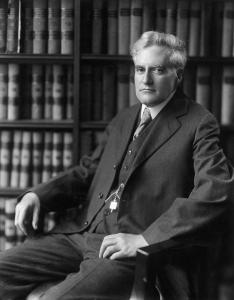
Benjamin N. Cardozo was a lawyer with serious mojo. He began his law career in 1891, having passed the New York bar exam despite an uncompleted term at Colombia Law. He co-founded the firm of Simpson, Warren & Cardozo, and practiced there for 23 years.
He eventually would serve as a judge at the New York Court of Appeals (New York’s highest court) for 18 years, before service as an Associate Justice of the US Supreme Court from 1932 to 1938. He was appointed by President Hoover to replace the iconic Oliver Wendell Holmes.
During a time of rapid industrialization, Cardozo is known for his rulings in contract and tort law. As a Supreme Court Justice, Cardozo was a member of the so-called “Three Musketeers”, along with Louis Brandeis and Harlan Stone, in issuing opinions generally supportive of the New Deal agenda of Franklin D. Roosevelt during the Great Depression.























